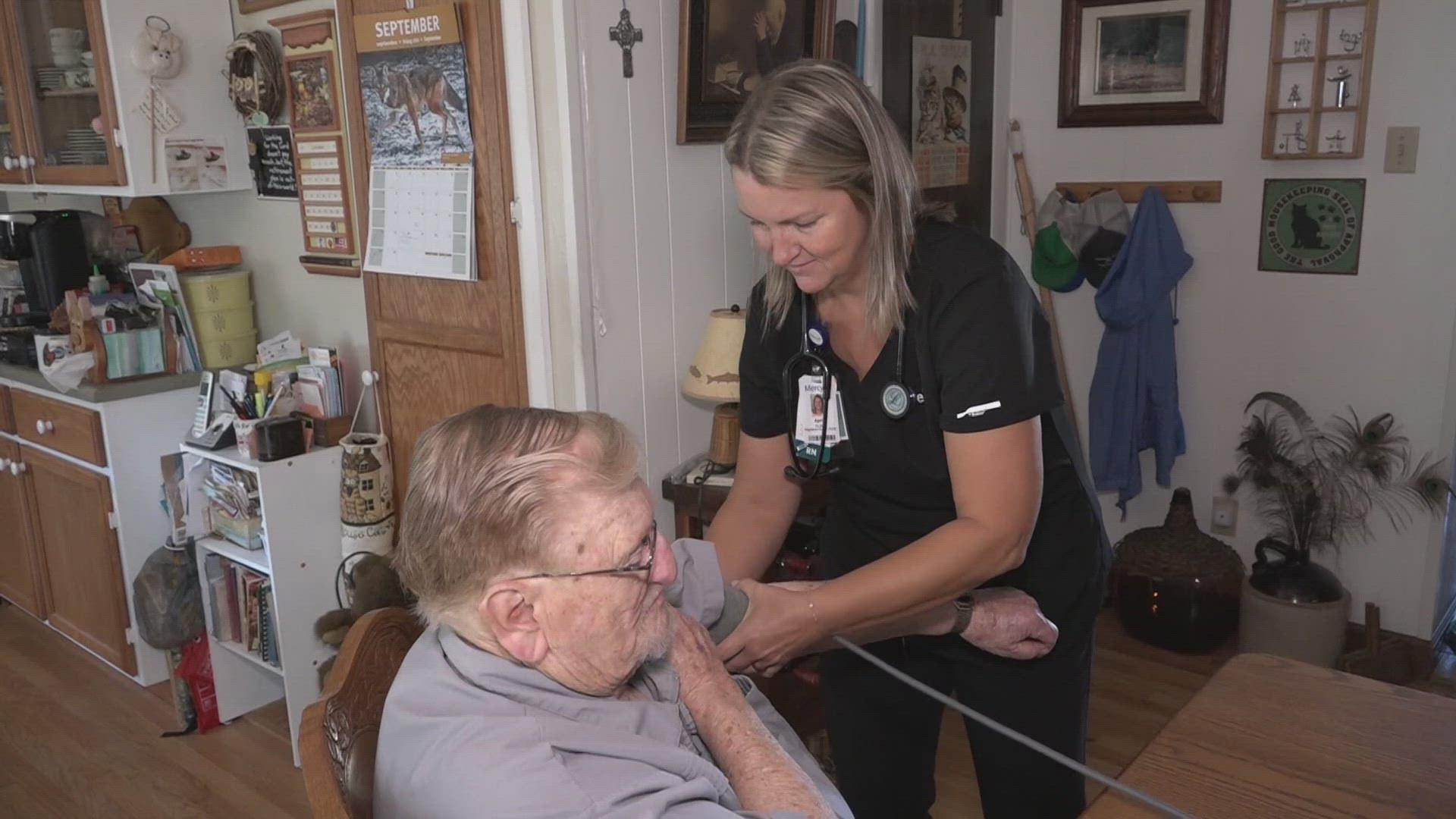ST. LOUIS COUNTY, Mo. — It has been one year since Mercy made it possible for patients to receive care without leaving their houses.
The healthcare system's Hospital-at-Home Program, launched in 2023 in St. Louis, grew out of the COVID-19 pandemic. Staff noted the idea was developed after a need to make room for bed space during the outbreak.
Similar to traditional in-patient services, patients will typically stay in care for about three to four days. The difference with this program however is that the same staff and care provided on the hospital floor will be inside the patient's home.
Patients would then be discharged into the care of Mercy's virtual program and eventually into the care of their primary doctor.
"What we've found was not only can we care for these patients and their home but very often patients heal faster. They get better rest," said Dr. Ann Elizabeth Mohart, vice president of Transitions of Care.
In its first year, hospital staff said at least 330 patients had been seen in the comfort of their own homes.
James Rhiver, 85, has been in and out of the hospital for the last nearly 30 years.
"I have a heart condition. I received a stent back in 94' and they said it would last probably about 10 years at the time and it lasted 29"
Rhiver first got to experience the program when he went in for an attack related to COVID-19.
He noted benefits like resting well and not being disturbed by noises associated with a hospital floor, eating well, watching TV, and still being able to do work for his church.
"The nurses were all great. And not just in the care but we could also joke and so on that you felt more relaxed sense," Rhiver said.
Patients also have an opportunity to connect with their nurses and doctors and not rush.
Staff noted there is a certain type of patient who benefits from the program.
"Congestive Heart Failure, COPD. Any sort of infectious lung condition. Pneumonia. COVID is a perfect example. Urinary tract, skin infections," she explained.
The Mehlville Fire Department just got on board and will bring in two full-time community paramedics and provide after-hours service when needed.
"Sometimes it's not a transfer back to the emergency department. Because that leads to a five-six hour wait time in the ER and patient satisfaction plummets when you have a situation like that," said Chief Brian Hendricks.
Another benefit is the cost-saving component attached to receiving care at home. Johns Hopkins reports a savings of 19%-30% when compared with in-hospital care.
There are a few requirements under the program including living within a 25-mile radius of participating hospitals, either in South County or Creve Coeur.
The Hospital-at-Home program is CMR-waiver-based which means there is an agreement with Medicare and Medicaid to provide service to recipients of those insurances in addition to working with other insurance companies.
Patients do have to undergo an evaluation in the emergency department before they are referred to the program.
Mercy has plans to expand to the rest of its locations across the state.

